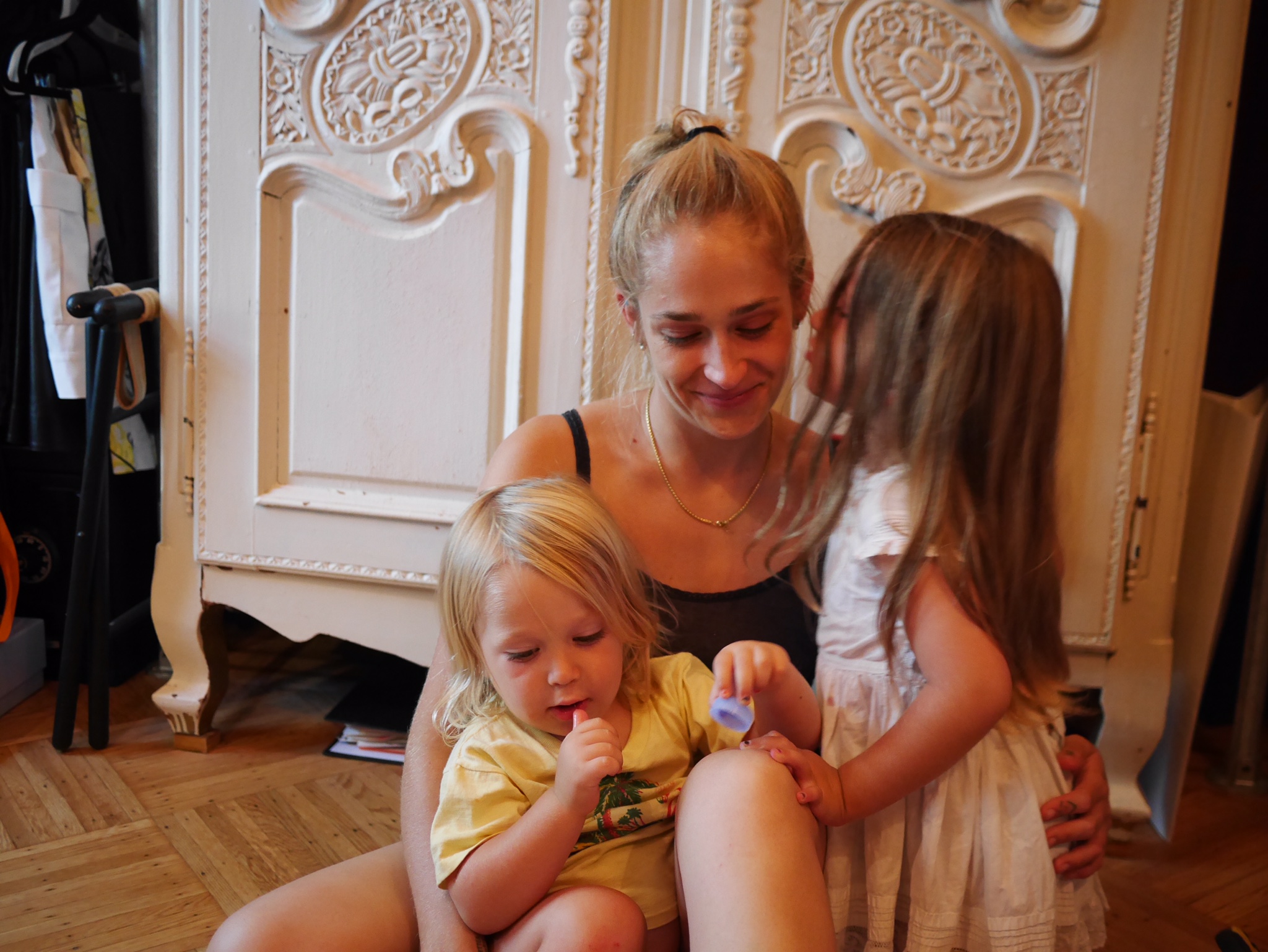
Weeks after coming home from the hospital with my first child, I would take the train into the city to see my mother. As I rolled the stroller along the narrow platform, I thought about pushing my daughter onto the tracks and watching the train kill her. What stirred this thought was the absolute shock that the only thing between the life and death of my child was a moment’s impulse. I was more powerful than I ever wanted to be, and I was scared I would screw this up. All I could think of was gore and pain and tragedy, and it felt as though it were all in my hands. How was I to be trusted? I now realize that what I was experiencing was a standoff with loss.
When my baby came out of me, I went into mourning. I mourned my selfishness, my old life, my cute body—but I also mourned her. How perfectly safe and endless she was before I brought her into the world, maybe before she was even conceived. The hopes I had for her. The perfect life I had imagined. All of that was protected before. And now she was human. Exposed, vulnerable and suffering.
Every awful headline, movie or story depicting something happening to a child became a threat. I deliberately Googled the stories of accidents or child abuse and read every detail until I was sick, sometimes crying so heavily it was as if it had happened to my own child. The guilt of mere possibilities was unbearable.
I once heard someone say that to be a parent is to have your heart live outside your body. I’ve always remembered that analogy. And not just because it annoyed me—it’s one of those vague slogans designed to tell you how you should feel about one thing or another. But also because of how this notion has inspired a culture of overprotective methodology and vigilance. It makes us believe that if we do things correctly, if we have all the information, we’ll be safe and our children will be safe. And if we don’t, well, there are many, many possible consequences. (The least of which are guilt and shame.)
Information is empowering. Yes. But add that to an acute fear of loss and you have full-on neurosis. Our parenting culture, which pumps out information via blogs, parenting books, playground conversation, doulas, mommy groups, -boutique preschools, playgroups, baby- and child-safety and efficiency products, Instagram, etc., blurs the existential truth that parenting is all loss.
In the subsequent years of being a mother, that morbidity has never left me. It’s at every turn, lurking behind every corner of my parental choices. As my children have grown, so have the gradations in the possibilities. If I don’t turn the baby monitor all the way up, will I miss the cries of my child, who might possibly be too cold? Or thirsty? Or lonely? If I soothe my children with a cookie, am I setting them up for obesity? If I don’t put my kids to bed tonight and instead go to a dinner party, will they think, “Why did Mommy leave me?”
As a result, I am constantly harassing, monitoring and condemning myself for mistakes, because doing so comforts me, as if the fear of loss could prevent it from happening. I can’t guarantee or even control my children’s well-being, in the same way I can’t guarantee I’m screwing them up. I don’t know how my choices will inadvertently affect their lives. We mislead ourselves, believing we are the sole answer to our children’s livelihood, to their happiness.
Read next:
More Must-Reads from TIME
- Donald Trump Is TIME's 2024 Person of the Year
- Why We Chose Trump as Person of the Year
- Is Intermittent Fasting Good or Bad for You?
- The 100 Must-Read Books of 2024
- The 20 Best Christmas TV Episodes
- Column: If Optimism Feels Ridiculous Now, Try Hope
- The Future of Climate Action Is Trade Policy
- Merle Bombardieri Is Helping People Make the Baby Decision
Contact us at letters@time.com